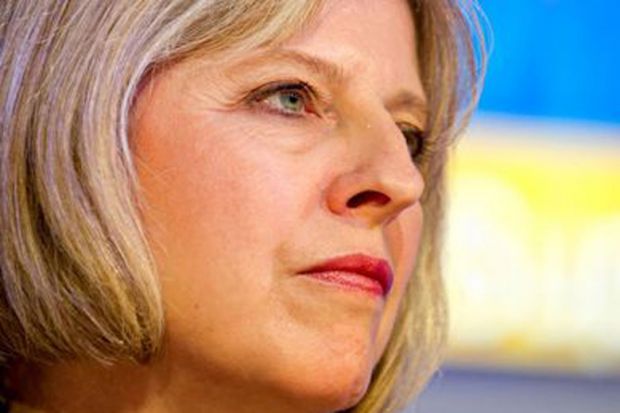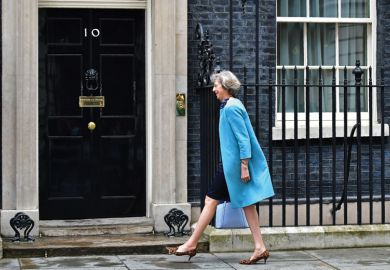Theresa May has already performed one screeching U-turn this week by calling a snap general election, veering back on previous assertions that there would be no vote until 2020. Is she about to perform the same manoeuvre on removing overseas students from the government’s target to reduce net migration, once again performing an about-turn so abrupt it would leave behind black tyre marks, smoke and the scent of burning rubber?
The Times splashes on a story headlined “May forced to weaken key target on migrants”.
“The prime minister is ready to soften her longstanding opposition to taking foreign students out of immigration totals” as “part of the price for calling a snap poll”, it reports.
With May having called an election for 8 June, the government now faces a race against time if it wants to pass the Higher Education and Research Bill before the election – which means doing it by the end of next week. If the bill doesn’t pass, the new government would have to start all over again and introduce a new bill after the election.
The HE bill has faced serious opposition in the House of Lords. One of the key amendments inserted by peers, tabled by Lord Hannay, states that no student shall “be treated for public policy purposes as a long term migrant to the UK, for the duration of their studies”. This would have the effect of removing students from the government’s net migration figures and – much more importantly – the government’s target to reduce net migration to the “tens of thousands”.
I reported earlier this week that Nicky Morgan, the former education secretary, was among Tory backbenchers willing to rebel against the government and potentially inflict defeat on it by backing the Hannay amendment – or more likely try to wring some concessions on overseas students out of the government as their price for not rebelling.
So the government was already in something of a fix over the Hannay amendment. Add in May’s announcement of a snap election and the race to push the bill through in a matter of days – now the government really does have a problem with the amendment (and the whole HE Bill).
But is May planning a full U-turn on overseas students? The Times story is vague and a bit conflicted. May is “offering to change the way that student numbers are calculated, with the promise of further concessions”; the government is likely to offer a “regulatory compromise” in how overseas student numbers in Britain are calculated.
Search the latest university jobs
May could change the way overseas students are calculated, without really having to “soften” her stance on including students in the net migration target at all.
My report earlier this week looked at the deal potential Tory rebels and senior figures in the university sector are seeking: a commitment from the government to base policy on more accurate student migration data and to drop its plans to differentiate the visa regime for universities according to their “quality”.
The Office for National Statistics is already reviewing the way student migration is measured.
Such a compromise deal from the government, committing to base policy in whatever measure the ONS identifies, might seem more likely than a full U-turn from May.
The Times story doesn’t look at one key issue: whether or not the Conservatives will even include the goal of reducing net migration to the “tens of thousands” in their manifesto.
The target has been such an embarrassment – in its very existence and in being missed – that it could be more prudent to ditch it. If May is planning to abandon the “tens of thousands” net migration target, then changing tack on overseas students would matter little, as the incentive to reduce international student numbers would have been removed anyway.
Might MPs voting on the Hannay amendment ask ministers what the manifesto plans are on immigration?
Now the government has to rush through the HE bill in just days – it must return to the Commons for consideration of amendments, then gain approval from the Lords – it is no longer in the driving seat on the bill.
Labour, whose agreement will be needed if the bill is to make it through so quickly, will be in a position to gain major concessions. The government will need to give ground on a lot more than just the Hannay amendment if it wants to get the bill through.
Register to continue
Why register?
- Registration is free and only takes a moment
- Once registered, you can read 3 articles a month
- Sign up for our newsletter
Subscribe
Or subscribe for unlimited access to:
- Unlimited access to news, views, insights & reviews
- Digital editions
- Digital access to THE’s university and college rankings analysis
Already registered or a current subscriber?




